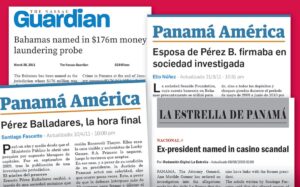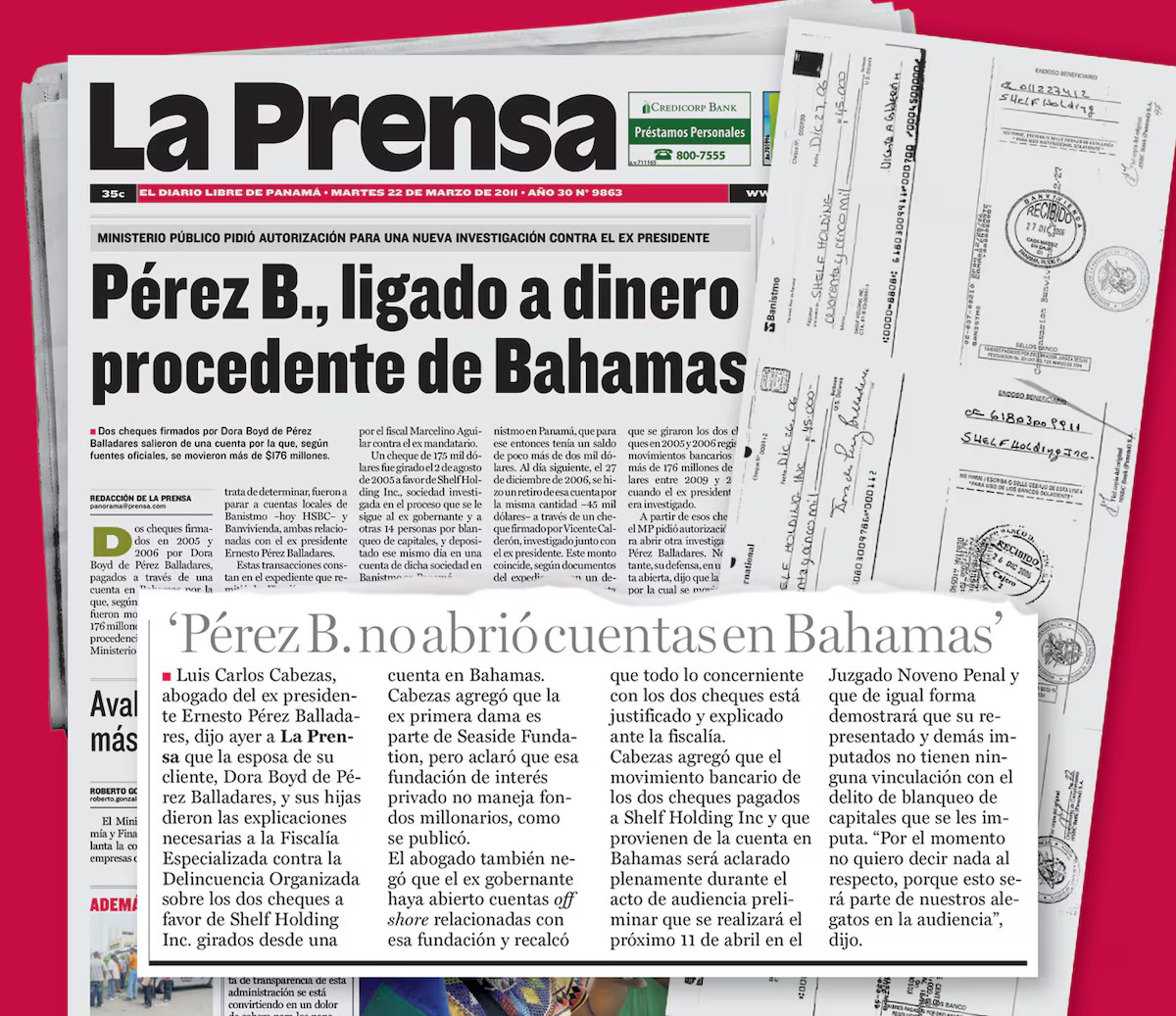La Prensa, a storied Panamanian newspaper with a history of challenging authorities, is under existential threat. A civil lawsuit brought by a former president is now before the Supreme Court and could lead to the 44-year-old publication closing its doors.
Former President Ernesto Pérez Balladares is arguing in a 12-year-old case that the newspaper caused him “moral damage” by publishing incorrect information that prosecutors reported in a corruption investigation.
Prosecutors had incorrectly calculated the amount of money in an off-shore bank account connected to Pérez Balladares, and even though La Prensa also published the former president’s version of the story, Pérez Balladares says in his suit that he wants the newspaper to pay him $5.5 million in damages.
“A former president suing you for $5 million over a prosecutor’s mistake doesn’t make any sense,” Annette Planells, president of parent company La Prensa Corporation, told LatAm Journalism Review (LJR). “When you look at that amount, there’s an intention behind it that goes far beyond repairing any damage. It’s about having an impact on the sustainability of the organization.”
This isn’t the first time La Prensa, which was founded by political exiles in 1980, has been confronted by authorities. In 1982, the newspaper’s editor was arrested for writing an article accusing the president of inciting violence against the newspaper’s offices.
Now, La Prensa faces 15 civil cases and five criminal complaints – including from other former government officials – that could represent more than $50 million in fines and damages. Pérez Balladares’ suit could be the biggest challenge yet.
The origin of the case dates to 2009, when La Prensa reporters investigated concessions the Panamá government made so private individuals could operate casinos while Pérez Balladares was president, from 1994 to 1999. Pérez Balladares had privatized the state phone and electric companies, and La Prensa’s investigation found that people close to him – including a brother and son-in-law – benefitted from concessions for gambling, which had otherwise been under state control.
La Prensa's investigation revealed that some of the companies that received concessions made deposits to a Bahamas-based bank account of a corporation whose founding documents were signed by Pérez Balladares.
After La Prensa editors published their investigation, prosecutors specializing in organized crime announced they were opening an investigation, and summoned Pérez Balladares to give a statement regarding alleged money laundering and corruption.
In 2011, the prosecutor's report indicated that the Bahamas account had transactions exceeding US $176 million from 2009 to 2010. However, the former president's defense said there was a misinterpretation of those transactions, which actually corresponded to all the bank's account holders during that period.

Varios medios dieron cobertura a la investigación en contra de Pérez Balladares e incluso publicaron el error de la fiscal. (Cortesía La Prensa)
That year, Pérez Balladares and 14 others accused of money laundering were acquitted. For the ninth criminal court, prosecutors failed to prove its accusations.
La Prensa published both the prosecution’s and the defense’s statements, Planells explains. The newspaper follows international accountability and transparency standards as part of the international Trust Project consortium, she added.
The Inter-American Press Association (SIP) reviewed La Prensa’s publications and found no violations of journalistic ethics, Carlos Jornet, president of the association’s press and information freedom commission, told LJR. "It reflected the ongoing judicial process, which is what a media outlet should do when a public figure is being questioned or accused by the judiciary," he said.
Despite this, Pérez Balladares sued La Prensa in 2012 for "moral damage" based on the information related to the Bahamas bank account.
The case was stalled in the judicial system until 2020, when Pérez Balladares requested the seizure of the media's assets, which was approved. The judiciary approved the preventive seizure of the media’s assets for over US $1 million, which has led to a frozen bank account for La Prensa’s parent company.
In June 2023, a lower court ruled in favor of La Prensa and ordered the former president to pay the legal costs of the case. In November 2023, an appellate court overturned that decision and ordered Corprensa to pay US $5,000 to the former president for moral damage.
The Supreme Court will now decide the case.
LJR consulted Pérez Balladares' lawyer, José María Castillo, who declined to comment. Instead, he shared a letter in response to concerns expressed by SIP.
In the letter, Castillo said the lawsuit against La Prensa cannot be considered harassment as they seek to protect the honor of their client. He said that it is former President Pérez Balladares who has been harassed.
La Prensa “lacked the capacity to apologize and, even less so, to publish a proper clarification,” Castillo wrote in the letter. “They resisted for a year the moral and ethical obligation they had to correct their mistake. A year later, given their attitude, we filed the lawsuit.”
The letter does not address the amount demanded as compensation, or La Prensa having published the defense's version. It also does not mention the error in information, which was also published by other outlets, having originated from the prosecutor's office.
Supreme Court spokesperson Marisol Velasco told LJR that they could not comment on cases that reach the court.
This is not the only one open case against La Prensa. Other former presidents, such as Ricardo Martinelli and his wife, public officials, lawmakers, former state contractors, and other public figures have lawsuits against La Prensa.

La Prensa señala que siempre le dio voz a la defensa del expresidente Pérez Balladares. (Cortesía La Prensa)
Since 2006, La Prensa has faced nearly 30 criminal complaints and 21 civil lawsuits, representing US $60 million, Planells said. They have managed to close some of these cases.
"The legal expenses have been enormous," Planells explained. "If we add the possibility that these lawsuits might succeed, we are facing the possibility of closing the outlet due to financial suffocation."
Planells said these types of cases will only encourage self-censorship among other media outlets and journalists, especially regarding corruption-related topics.
"It generates self-censorship, which only creates fertile ground for more wrongdoing and abuse of power for personal gain," Planells said.
For Jornet from SIP, what La Prensa is representative of forces challenging press freedom in Panamá. SIP has expressed the need for a change in laws to address issues like media asset seizures, high compensation amounts, and the problem of judicial harassment through lawsuits.
"These totally unusual, disproportionate lawsuits are clearly a form of pressure rather than a genuine attempt to seek redress,” Jornet said. “There is a clear, manifest disproportionality, and the aim is to exert very strong pressure on the media outlet and condition its editorial line.”